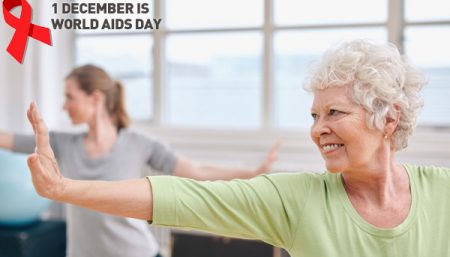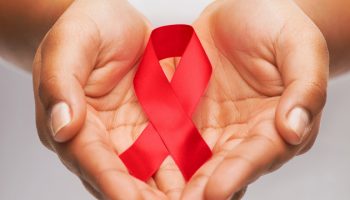The 2016 Federal AIDS Awareness theme is “Leadership. Commitment. Impact.”

Reflecting on efforts made by some celebrities to fight AIDS, in 1985, Elizabeth Taylor joined with a group of doctors and scientists to form the American Foundation for AIDS Research, or what is now commonly known as amfAR.
Today, she is remembered for the magnanimous impact that she had on the lives of so many through her activism as she is for burning up the screen with her beauty and talent.
Alicia Keys said to ABC news “Talking about HIV-AIDS, you know, it’s critical and it is our generation’s issue and if we don’t talk about it now, it’s going to continue, we tend to have a good international dialogue, like a good, healthy dialogue, but we’re not really discussing it in America. … We have to learn as much as we can and we have to share with as many people we can.”
Another celebrity to talk on AIDS is, Rihanna who is ready to bring the same passion and strength as in her music to the fight against AIDS. The Umbrella singer has partnered with MAC Cosmetics to raise awareness and educate people about the virus.
Miley Cyrus is another of the 2015 MAC Viva Glam spokesperson, and the southern songstress is working to raise awareness for HIV/AIDS.

Stand Up to Prevent Transmission of HIV
1. Stop Sharing Syringes:
Sharing needles and syringes is a direct route of transmission for HIV and hepatitis B and C viruses. One consequence of the nation’s deadly opioid epidemic is the increased risk of HIV and hepatitis B and C transmission through unsafe injection drug use. “The prescription opioid and heroin epidemics are devastating families and communities throughout the nation, and the potential for new HIV outbreaks is of growing concern,” said CDC Director Tom Frieden, M.D., M.P.H. “Comprehensive SSPs prevent HIV and hepatitis transmission and bridge patients to services that help them stop substance use.”
2. Educate the Vulnerable Population:
includes groups of people who are particularly vulnerable to HIV infection in certain situations or contexts, such as adolescents (particularly adolescent girls in sub-Saharan Africa), orphans, street children, people with disabilities and migrant and mobile workers. These populations are not affected by HIV uniformly across all countries and epidemics.
Talking of Specific HIV Prevention Guidelines issued by WHO:
- The correct and consistent use of condoms with condom-compatible lubricants is recommended for all key populations to prevent sexual transmission of HIV and sexually transmitted infections (STIs).
- Oral pre-exposure prophylaxis (PrEP) containing tenofovir disoproxil fumarate (TDF) should be offered as an additional prevention choice for key populations at substantial risk of HIV infection as part of combination HIV prevention approaches.
- Post-exposure prophylaxis (PEP) should be available to all eligible people from key populations on a voluntary basis after possible exposure to HIV.
- Voluntary medical male circumcision (VMMC) is recommended as an additional, important strategy for the prevention of heterosexually acquired HIV infection in men, particularly in settings with hyperendemic and generalized HIV epidemics and low prevalence of male circumcision.
- All people from key populations who inject drugs should have access to sterile injecting equipment through needle and syringe programmes.
- All people from key populations who are dependent on opioids should be offered and have access to opioid substitution therapy.
- All people from key populations with harmful alcohol or other substance use should have access to evidence-based interventions, including brief psycho-social interventions involving assessment, specific feedback and advice.
- People likely to witness an opioid overdose should have access to naloxone and be instructed in its use for emergency management of suspected opioid overdose.
- Voluntary HTC should be routinely offered to all key populations both in the community and in clinical settings. Community-based HIV testing and counselling for key populations, linked to prevention, care and treatment services, is recommended, in addition to providerinitiated testing and counselling.
- Key populations living with HIV should have the same access to antiretroviral therapy (ART) and to ART management as other populations.
- All pregnant women from key populations should have the same access to services for prevention of mother-to-child transmission (PMTCT) and follow the same recommendations as women in other populations.
- Key populations should have the same access to tuberculosis (TB) prevention, screening and treatment services as other populations at risk of or living with HIV.
- Key populations should have the same access to hepatitis B and C prevention, screening and treatment services as other populations at risk of or living with HIV.
- Routine screening and management of mental health disorders (depression and psychosocial stress) should be provided for people from key populations living with HIV in order to optimize health outcomes and improve their adherence to ART. Management can range from cocounselling for HIV and depression to appropriate medical therapies.
- Screening, diagnosis and treatment of sexually transmitted infections should be offered routinely as part of comprehensive HIV prevention and care for key populations.
- People from key populations, including those living with HIV, should be able to experience full, pleasurable sex lives and have access to a range of reproductive options.
- Abortion laws and services should protect the health and human rights of all women, including those from key populations.
- All women from key populations should opt for cervical cancer screening.
- All women from key population should have the same support and access to services related to conception and pregnancy care, as women from other groups.

Groups that are particularly vulnerable to HIV infection, include migrant workers, refugees, long-distance truck drivers, military personnel, miners, and young women.
Recently, The Queen of Indonesian Rap, Denada Tambunan and the prominent actress Atiqah Hasiholan contributed to campaign, by widely using the power of social media to promote HIV testing in Indonesia.
Don’t be left Behind in your contribution to fight AIDS.
Reference:
http://apps.who.int/iris/
Disclaimer
The Content is not intended to be a substitute for professional medical advice, diagnosis, or treatment. Always seek the advice of your physician or other qualified health provider with any questions you may have regarding a medical condition.



